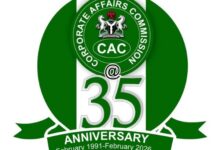Energy sufficiency: Use of solar vigorously promoted, hydro, wind others expanding – FG

The Federal Government says the usage of solar energy is being vigorously promoted, while the use of hydro, wind and other natural resources are being expanded for energy sufficiency in the country.
The Minister of State for Petroleum Resources, Chief Timipre Sylva, made this known on Thursday in Abuja at the Oloibiri Lecture Series and Energy Forum 2022 (OLEF).
The forum, themed “Global Energy Transition: Implications on Future Investments in the Nigerian Oil and Gas Industry” was organised by the Society of Petroleum Engineers (SPE) and hosted by Petroleum Technology Development Fund (PTDF).
According to the minister, in the face of the current high level of energy poverty worldwide, all energy sources will be required to achieve the Sustainable Development Goals (SDGs) energy goal.
Energy is a critical enabler to achieving the 17 UN SDGs – Access to affordable, reliable, sustainable and modern energy which is prominently addressed in the 2030 SDG Agenda, and regarded as a fundamental right.
Sylva, represented by Dr Nasir Sani-Gwarzo, Permanent Secretary of the ministry, said that it was evident that the goal could not be achieved by renewable energy resources alone.
According to the minister, all available energy resources should be used, while available technologies should be leveraged to make them cleaner.
He said that energy transition should be carried out in a just, equitable and inclusive manner with special considerations for the energy-poor to ensure that no one was left behind.
“It is misleading to equate energy transition to getting rid of fossil fuels.
“It is actually malicious to give fossil fuels a bad name after most countries have ridden on the backs of the same fossil fuels to develop socially and economically.
“As we all know; Nigeria is still bedeviled with energy poverty. Nigeria currently has one of the highest rates of energy poverty in the world.
“Some estimates put it that only about 55 per cent of over 200 million people in Nigeria have access to electricity, while only 13 per cent have access to clean cooking.
“Nigeria’s goal should be energy sufficiency in order to ensure energy security and end the ravaging energy poverty in the country. This is required to drive our economic growth, and end the prevailing economic poverty,’’ he said.
Sylva, while stating that Natural gas was widely regarded as a low carbon-emitting energy source for the energy transition quest, said efforts should be geared towards making it even cleaner by deploying available technologies.
He said that the risk of limited international financing could jeopardise Nigeria’s energy transition and roadmap to attaining net-zero.
“We have seen policies and pronouncements at governmental and corporate levels aimed at discouraging investment in fossil fuels.
“We have seen decisions by some International Oil Companies to reduce or outrightly stop long-term investments in upstream projects and development of new technologies for exploration, production and processing of crude oil, or servicing the existing technologies.
“Penalties may soon be put on the production and use of fossil fuels, directly or indirectly, in order to bridge the gaps that may be created by large taxes raked by developed countries from the consumption of oil,’’ he said.
READ ALSO:https://brandeconomy.com.ng/buhari-lauds-boi-for-creating-9m-jobs/
In an address, Prof. Olalekan Olafuyi, Chairman, SPE, Nigeria Council, said currently the world was facing a serious energy challenge that required an all-inclusive approach that could address specific regional problems with their peculiarities.
Olafuyi said the outcome of COP-26 which had created a campaign against fossil fuel funding had been challenged by the recent energy crisis resulting from the Russian invasion of Ukraine.
“Now is the time for us to formulate frameworks and adopt best practices for the United Nation’s SDG goals 17 addressing affordable and sustainable energy for all and #13 combatting climate change.
“And, at the same time maintain the United Nation’s SDG one and three which are centred around ending poverty and promoting healthy living, which is the essence of our very existence on this planet.
He said the SPE Nigeria Council would continue to play a pivotal role in shaping policy direction and execution by ensuring that the outcome of these conversations was well documented and presented to the authorities.
The News Agency of Nigeria (NAN) reports that the forum is being held annually in commemoration of the very first commercial well drilled in Nigeria at Oloibiri, Bayelsa State in 1956.
(NAN)











